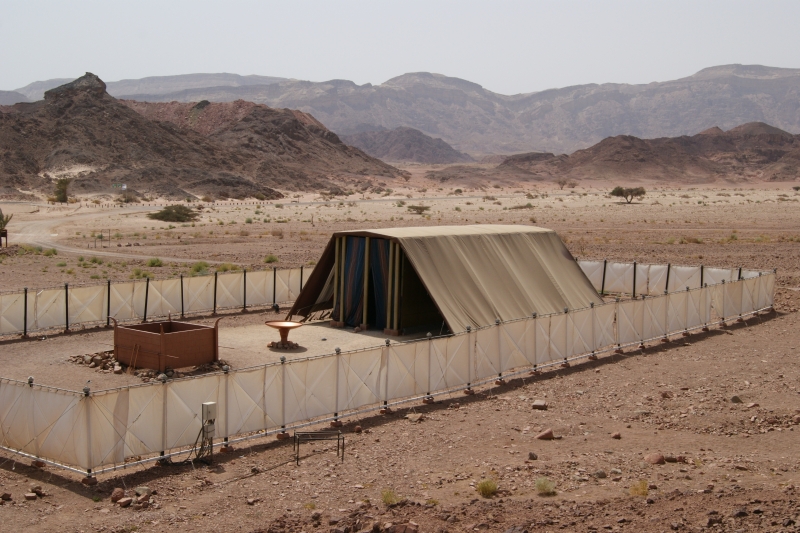So there has been a lot of talk around the Feast of Tabernacles in the recent days. I skimming through articles on the internet that shed light on the same and I found this Article to be quite informative, so thought I’ll share it here.
“AND IT SHALL COME TO PASS THAT EVERYONE WHO IS LEFT OF ALL NATIONS WHICH CAME AGAINST JERUSALEM SHALL GO UP FROM YEAR TO YEAR TO WORSHIP THE KING, THE LORD OF HOSTS, AND TO KEEP THE FEAST OF TABERNACLES.” ZECHARIAH 14:16
Some may ask why are thousands of Christians coming up to Jerusalem each year to celebrate the Feast of Tabernacles? After all, isn’t this a “Jewish holiday”?
The answer lies in the unique universal significance of this ancient biblical festival and its past, present and future relevance for all nations.
Every biblical holiday given to the Jewish people has these three aspects. Israel was commanded to observe the holiday in the present in order to remember something God had done in the past, and because of some future prophetic purpose hidden within each festival.
Thus Jews begin Shabbat each week by lighting of two candles, which stand for “Keep” and “Remember”. In so doing, they remember how God rested on the seventh day of Creation while also looking forward to the Millennial rest promised for the whole earth.
Likewise, Passover and Pentecost look back on the great Exodus from Egypt and the giving of the law at Sinai, while their hidden prophetic purposes were fulfilled in the death and resurrection of Jesus and the birth of the Church fifty days later.
The Feast of Tabernacles, or Sukkot, is the third great annual pilgrimage festival when the Jewish people gather together in Jerusalem not only to remember God’s provision in the Wilderness but also to look ahead to that promised Messianic age when all nations will flow to Jerusalem to worship the Lord.
A Feast for All People
Tabernacles is unique, however, in that the nations also were invited in ancient times to come up to Jerusalem at this season to worship the Lord alongside the Jewish people. This tradition first arose from the command given to Moses that Israel should sacrifice seventy bulls at Sukkot, which were offered for the seventy nations descended from Noah (see Numbers 29:12-35).
When Solomon later dedicated his Temple at Sukkot, he also called on the Lord to hear the prayers of all the foreigners that would come there to pray (2 Chronicles 6:32-33). Thus, Jerusalem and the Temple itself were destined from the start to be a “house of prayer for all nations” (Isaiah 56:7; Matthew 21:13).
A second unique aspect of Sukkot is that it is a feast of joy. It is a fall harvest feast to be marked with great rejoicing in the ingathering of the fruit of the land. Israel also was called to instruct the nations in the laws of God and the people were to take joy in this task. Thus, Sukkot also serves as a harbinger of the joyous last-days ingathering of the nations.
The Past: Remembering the God of Provision
The most visible symbol of Sukkot is the small hut or booth which the Israelites were commanded to dwell in for the eight days of the Feast of Tabernacles (Leviticus 23:33-43). Jewish families across Israel build these booths on their patios and balconies, and decorate them with colourful fruit, ribbons and pictures. Some families eat their meals in the sukkah and even sleep there at night.
These flimsy booths serve as a reminder to Israel that they once dwelled in makeshift huts during the forty years of wanderings in the Wilderness. It was a harsh environment and they were totally dependent on the Lord. Yet during that time, God was ever faithful to provide water, manna, quail and every other thing they needed to sustain them in the barren desert. He even was a pillar of cloud by day and a pillar of fire by night – a shade from the noon-day sun and then warmth and light in the darkness.
Indeed He is Jehovah Jireh, the “Lord who Provides”, and who even provided Himself a sacrifice for our salvation (Genesis 22:14). So there is every reason for Christians to also celebrate the faithful provision of the Lord in our lives at Sukkot.
The Present: Celebrating His Presence Today
Sukkot also marks the ingathering of the harvest at the end of the summer season, providing sustenance for the coming winter. There is also at present a great harvest of souls from every corner of the world into the Kingdom of God. This too gives us reason to celebrate, as Christians from around the globe gather to worship the Lord together in Jerusalem at Sukkot.
It may surprise some, but Jesus also celebrated the Feast of Tabernacles. The Book of John, in chapter 7, tells us that one year the disciples went up to Jerusalem for Sukkot but Jesus stayed behind and then came up secretly. Then on the last “great day of the feast”, he stood in the Temple courts and cried out: “If anyone thirsts, let him come to Me and drink. He who believes in Me, as the Scripture has said, out of his heart will flow rivers of living water.” (John 7:37-38)
So Sukkot is a time for Christians to rejoice in the abiding presence of the Holy Spirit in our earthen vessels.
The Future: Entering the Joy of the Lord
The prophet Zechariah foretells of a time when all nations will ascend to Jerusalem from year to year to “worship the King, the Lord of hosts, and to keep the Feast of Tabernacles” (14:16). Thus we keep Sukkot now because of that future prophetic purpose hidden in this unique festival which will soon be revealed – and it has to do with the second coming of the Lord.
Throughout the Messianic Age, the entire world will celebrate this feast because I believe it will mark the return of Jesus to the earth. For a thousand years, we will look back on the day of his appearing to take up the throne of David in Jerusalem and to judge the world in righteousness and peace.
At that time all nations will be required to join in this yearly gathering, but for now it is voluntary. Yet when Christians flock to Jerusalem now to celebrate the Feast of Tabernacles, it serves as a powerful statement of faith that we believe that day is coming when the earth will finally be at rest in Messiah, the King of Israel.
For the past thirty-five years, thousands of Christians from all over the world have come up to Jerusalem each fall to celebrate the Feast of Tabernacles, sponsored by the International Christian Embassy Jerusalem. They come with much expectancy to take part in a dynamic worship experience, knowing the One we worship will soon be sitting on His throne in this great city. Indeed, celebrating Sukkot now gives us a foretaste of the joy of the age to come.
THE ABOVE ARTICLE WAS FOUND ON THE LINK: http://feast.icej.org/about


